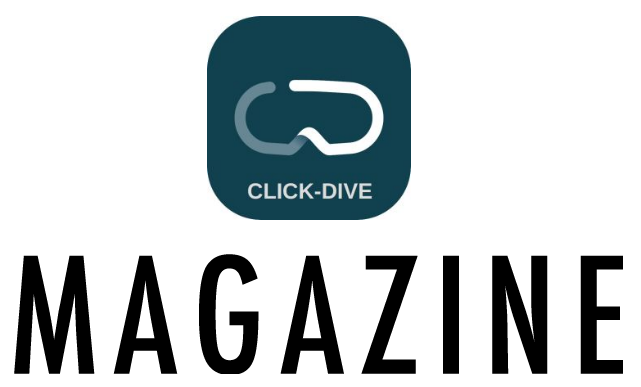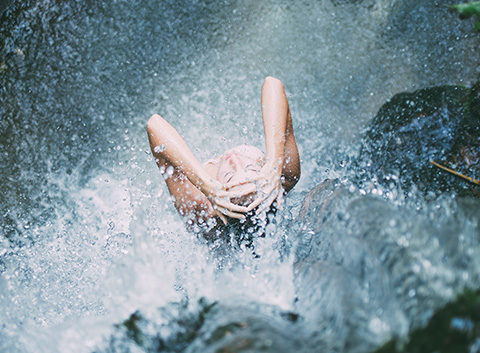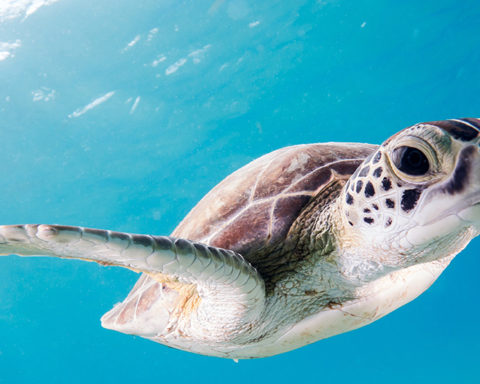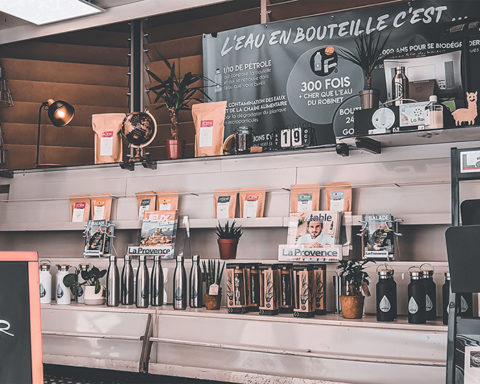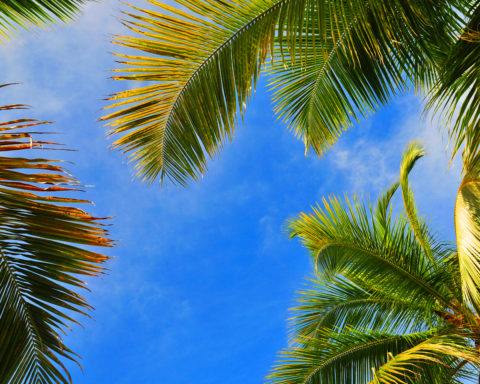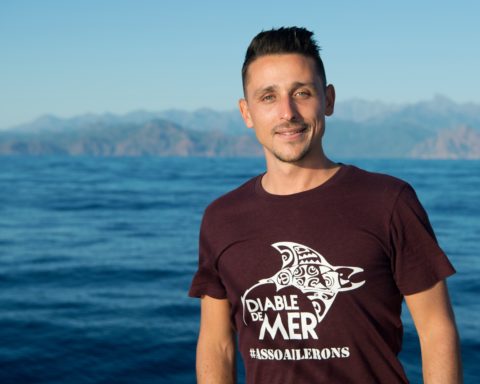This well-known plastic, developed in 1913, offering revolutionary properties such as flexibility, impermeability and durability, was an innovation that has today invaded the market. It has changed our habits and, more than ever, is omnipresent in our daily lives. What was not taken into account at the beginning of the last century was its poor degradation.
Indeed, most of the plastics we produce become, after being used, waste that accumulates in our garbage cans, in landfills, in rivers and in the oceans. After several stages of degradation, they form a plastic soup identified in the center of the 7th continent. This one is three times the size of France. Plastic is nowadays present in different sizes. In macro-waste (visible to the naked eye), found in the stomachs of marine species or seabirds, but also in micro-particles (less than 5 mm) in our fish, and in the sea salt. According to a WWF report in 2019, we eat the equivalent of a plastic credit card per week which are dissimulated in our food. Many scientific studies have shown in the past the devastating effect of this material on our health and on our planet. Today, oceanologists, associations for the protection of nature and the media, bombard us with images which show us beaches entirely ravaged by plastic pollution, and yet we continue to find it in our daily uses. Our smartphones, cars, clothes, medical devices and many other products are made of plastic and therefore will become waste in the short term. Most of the plastics we find in the environment are often single-use plastics.
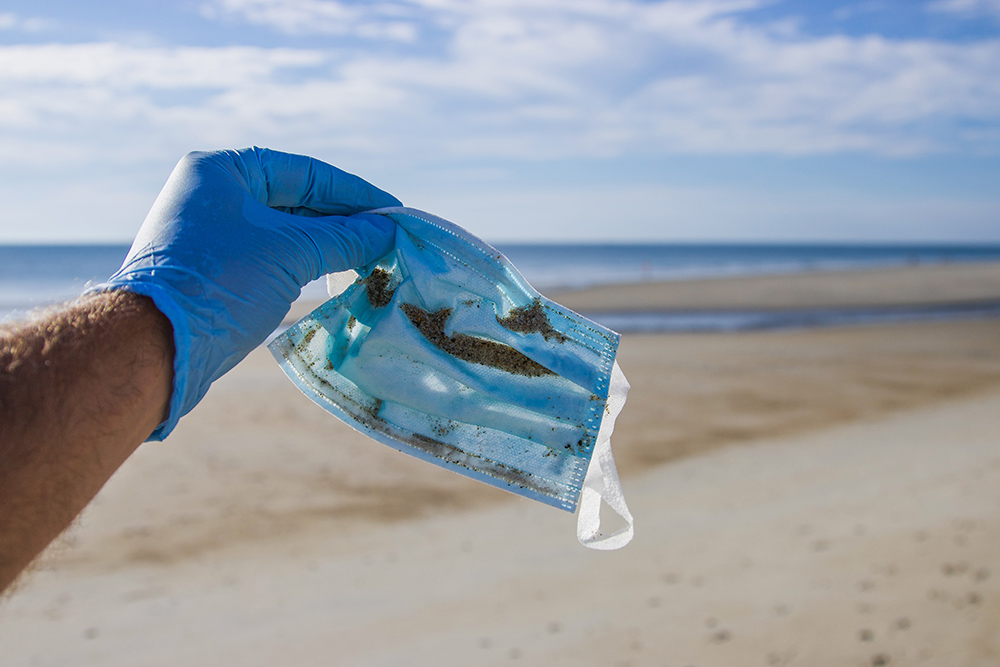
With the emergence of COVID-19, the consumption of single-use plastics exploded. Indeed, for reasons of health precautions, plastics have taken an important place in the medical field (masks, gloves…), in the catering industry (trays for delivery) and in the food industry (plastic bags for delivery to at-risk people). As a result of regulations imposed on businesses, entire shelves have been wrapped in plastic film…Surgical masks, which we find by the hundreds in nature, on parking lots, are made of polypropylene. A plastic that takes centuries to decompose, that pollutes once again… The sanitary disaster we are experiencing does not help in the reduction of single-use plastic…
The plastic pollution is a serious and major pollution that needs our immediate attention. We cannot wait any longer. More than 75% of the plastics produced become waste. Several million tons are continuously discharged into our environment. We can all be actors of our change! There are solutions…
Let’s reduce the purchase of plastic, “the best waste is the one that doesn’t exist”.
Even though plastics are recyclable, the cycle remains limited. Moreover, it is still difficult to recycle 100% of plastics. The solution is to limit the purchase of a product packaged in plastic or simply made out of plastic. Of course, this is not an easy task, and yet we already make the effort in our daily life. A typical example is the plastic bottle; according to Surfrider Foundation Europe, it is the third most common plastic waste found in nature (Iniatives Océanes, 2018). The manufacture of plastic containers pollutes, however, there is also the environmental impact of the water transported from its place of production to the supermarket and then to the consumer’s home. Thus, 1L of mineral water transported by truck over 100 km generates a carbon footprint of 154g of CO2. Tap water generates only 0.1g of carbon/L, i.e. 1540 times less (Bon à Savoir, 2021).
Every gesture we make counts!
For example, stainless steel water bottles are an interesting and much less polluting alternative! They do not contain any endocrine disruptors or harmful substances, and they are also isothermal!
Click-Dive is working with a startup “Gourdes for You” which has converted a newspaper kiosk into a gourd bar on the Rue de la République in Marseille! Also, a reseller of our diver’s soaps, you can purchase our products and gourds. To go further, a smartphone application shows you the points where you can fill your gourd in Marseille!
Plastic clutters up our bathrooms: toothpaste, shampoo, conditioner, shower gel, body scrub, etc. all wrapped in plastic. Let’s focus on alternatives, such as solid cosmetics that avoid packaging. Find out on our e-boutique, our range of 100% biodegradable cosmetics produced by Provencal artisanal soap manufacturers.
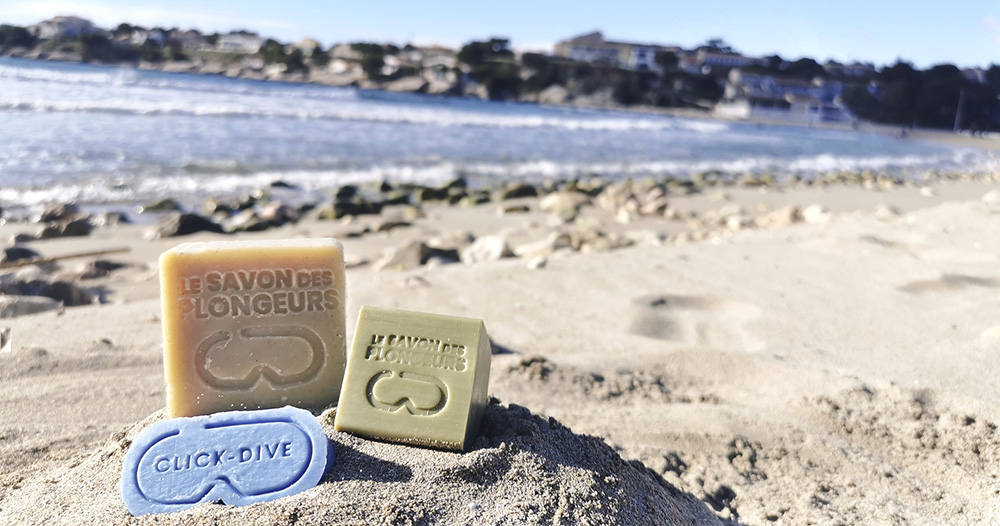
The same applies to our cleaning products. Not only are our household products contained in plastic bottles or tubes that are over-wrapped in plastic film or cardboard, but they are themselves harmful to the environment and therefore harmful to our health. Why not make all these soaps and detergents yourself or buy 100% natural products? With le savon de marseille, Aleppo soap, baking soda and white vinegar, it is possible to wash both your house and your clothes without impacting the underground water table.
Numerous tutorials and blogs (zero waste blog Mélie Co(o)p) show how to make household products from the recipes of grandmothers using non-polluting and economical elements. By buying our savon de Marseille on our e-boutique you are supporting us in our efforts to fight plastic pollution and support environmental protection associations.
Let’s also open the doors of our fridge or our closets and look at the amount of packaging that surrounds our food; it’s scary! A movement called “Plastic Attack” was created in the United Kingdom in 2018 and has since spread throughout Europe, asking citizens to leave all their plastic packaging at the entrance of supermarkets. This initiative aims to raise awareness among consumers and politicians against over-packaging and to change production and consumption patterns.
Confronted by this pollution, all citizens, as well as the government, are establishing regulations, laws and legal actions…
By 2040, single-use plastics will be banned in France. As of January 2021, this law against waste and for the circular economy expands the list of banned plastics. Now single-use plastic straws, cutlery or stirrers as well as drink lids, steak sticks, balloon rods, plastic straws and confetti are prohibited. Expanded polystyrene boxes used in fast food restaurants are also on the list. Plastic pollution concerns everyone from politicians to citizens. Let’s not wait until 2040 to change our habits, every gesture is important for the well-being of our oceans.
The reduction of plastic also involves our choice of consumption. For example, buying local and seasonal foods directly from the market significantly reduces our carbon footprint, reduces the amount of plastic packaging and supports the local economy.
The Greenpeace website offers a list of vegetables and fruits indexed by season and month.
It is the same for fish and seafood. Buying directly from a fisherman who practices sustainable fishing allows, on the one hand, to reduce single-use plastics and, on the other hand, to respect fish production cycles. It is also possible to order fresh fish that is 100% French and comes from eco-responsible fishing directly from the Poiscaille company. As we all know, tomatoes are not eaten in winter, tuna is not eaten all year round but rather from July to December. To learn more about the fish season, we invite you to browse the site: pecheursdebretagne
In order to act well, you have to be well-informed. There are nowadays a lot of studies and literature on the issue of plastics and its consequences on the environment. We invite you to learn more about the subject to be sure that your actions are as environmentally friendly as possible. Indeed, if we don’t know the carbon footprint of each of our actions, we may unknowingly adopt counterproductive approaches.
In addition, do not hesitate to inform your acquaintances of the extent of their actions and guide them to practice more sustainable and environmentally friendly behaviors and solutions.
If you think that this article can be a starting point for someone who has doubts or reservations, do not hesitate to share it with them. We all know the problem of plastic pollution but do we really know what is at stake for the environment and our future?
